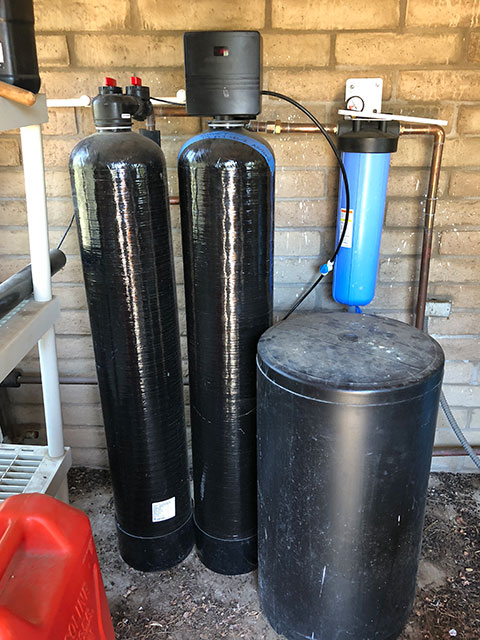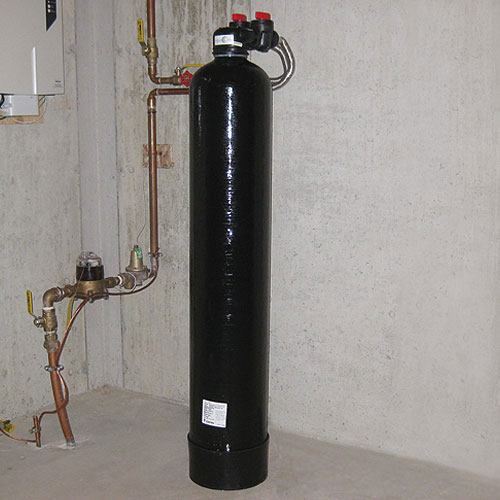The article following next on the subject of What is a Whole House Water Filter and How Does It Work? is exceedingly intriguing. Don't bypass it.

Whole house water filters are the best alternative for individuals that are interested in having a house that supplies tidy, drinkable water. In addition to providing quality alcohol consumption water throughout the house, a whole house water filter likewise supplies advantages such as getting rid of contaminations that create spotting in water that is used to clean recipes. Unfiltered water can additionally create trouble such as wearing away pipes and also appliances, ruining clothes that is cleaned and also tarnish sinks or showers. Although entire residence water filters are generally made use of in household residences, they can additionally be a reliable option for apartments or offices.
At first, it might appear that entire residence water filters would certainly be very costly when compared to other filter choices, but they are in fact a really economical option for water purification. The rate variety of these water filters is huge, starting at 2 hundred bucks and costing as long as one thousand bucks. The cost of the filters is dependent upon their dimension, product and also lifetime. This may feel like a very high price, yet when compared to other filter options, it is in fact extremely inexpensive as a result of the quantity of filtering system that it supplies.
Entire home water filters detoxify water in the same fashion that other filters, such as kitchen counter or under sink filters, do. The distinction is that it needs only one filter, which is connected to the main water resource, instead of needing multiple water filters to be affixed to various tools. Just like the other filters, whole home water filters purify faucet water forcibly it with numerous various phases of purification. Among the stages is carbon purification. Carbon is an effective technique of filtering water because it is porous and also has the capacity to get rid of small as well as large pollutants. Carbon is necessary in eliminating volatile natural carbon substances, which in some cases can cause severe damages to the liver, kidney or main nerve system. Carbon likewise removes harmful compounds such as pesticides, industrial solvents as well as pesticides.
One more necessary step of the filtering procedure involves a procedure such as ionization or micron purification. This step removes hundreds of contaminants found in tap water, and transforms the water to fantastic tasting, healthy drinking water. As stated previously, the major benefit of entire home water filters are that they supply filtered water throughout your home with using only one filter.
Another advantage of whole house water filters is the lengthy lifetime that they use. Much of these filters last between fifty and one hundred thousand gallons of water. For many, the main drawback of whole residence filters is the greater than typical price. Although these filters are very affordable, they do require a huge financial investment in advance. Entire home water filters can likewise require a significant quantity job to set up.
Tips to Choosing a Whole House Well Water Filter
A whole house filter is a type of filter that is connected to the main supply so that the water that enters your house is already treated. Unlike point-of-use filters, which are installed to filter water from the house, point-of-entry filters let your water dispensers – kitchen, laundry, bathtubs, showers and toilets dispense filtered water. Water filtration is an easy process that ensures water flowing has great taste and is purified. At Schultz Soft Water, our professionals know that the type of filter that you purchase can impact the quality and the amount of water that can flow in your house. As a rule, you need to consider the credibility and the reputation of the company or the vendor that you want to deliver the filters. Here are the top 5 tips on choosing the best whole house water filters for your home.
Decide on the Type of Whole House Filter
Choosing the type of filter to be installed depends on the type of contaminants in your water. You need to talk to a professional to determine which contaminants you need to remove from the water flowing into your home. If your main water line is maintained by a municipal service, you may need to remove sediments, chlorine, minerals and chemicals.
If you are considering connecting your home with a private water well, you will need to remove contaminants such as hardness minerals, iron and sediment. However, the amount of contaminants in the water may vary in from mild to toxic. We at Schultz Soft Water understand that correct selection of the filter is important in ensuring that only completely filtered water flows in your dispensers. Our professionals can help with analyzing your water to help make the right decision.
Know the Flow Rate of Your Dispensers and Appliances
The flow rate is measured in gallons/minute. The flow rate is the measure of the amount of water that can run through your house dispensers—dishwashers, showers, hot water heaters, and toilet. When planning to buy your filters, make sure to know the demand specifications provided by the manufacturer of your appliances and water dispensers in your home. For example, a typical showerhead has a flow rate of 2.5-5 gallons per minute while dishwashers and toilets have flow rates of 5 gpm and 3 gpm respectively. Depending on the size of your family, the number of water dispensers, and the flow rate of each dispenser, a professional can help you calculate the right flow rate that your filter should have.
A whole house well water filter system with a flow rate lower than the required rate would mean interrupted water flow, and low water pressure, especially during peak use.
Consider the Size of the Filter You Want for Your Home
A large filter is the best, as it means increased water supply and longer service interval. You also need to check the port size of the filter since it impacts the gallons per minute and the pressure of water that flows into your house. For an average home, the ideal size of a whole house filter should be 4.5"x 20". On the other hand, large households may need to install filters with a flow rate of 25gpm and 1 1/2 -inch ports.
Ask About the Life of Your Whole House Well Water Filter System
The life of the filter will vary based on the state of water you plan to filter. The quantity and the quality of the sediment in water should be considered when buying a whole house well water filter system. The life of the filter is determined by the amount of water that it can filter before being replaced. If water pressure is reduced, you most likely waited too long before filter changes. We recommend maintaining records of filter changes so you can get on a routine schedule.
Ensure to Find NSF-Certified Filter System
When all other factors have been considered, the most important thing that you want to know is if the filter system is NSF certified. No matter the size of the filters you are buying, it is prudent to ensure it is certified. You can check the seal, which is a sign that the filter system has been tested and approved by the authorities.
If you have decided to replace your old filter systems or replace them with a modern one, these tips will help you select the best whole house well filter systems. They are not only compliant to the state safety and protection rules, but also efficient to solve all your water filtration needs. Our professionals at Schultz Soft Water will help determine the water quality by analyzing the contaminants that need to be removed.

I am very interested by Everything You Need to Know About Whole House Water Filter and I'm hoping you enjoyed reading our post. Sharing is good. You just don't know, you may very well be helping someone out. Thank you so much for your time invested reading it.
Protect your property, call!
Comments on “Top Water Filtration for the Whole House”